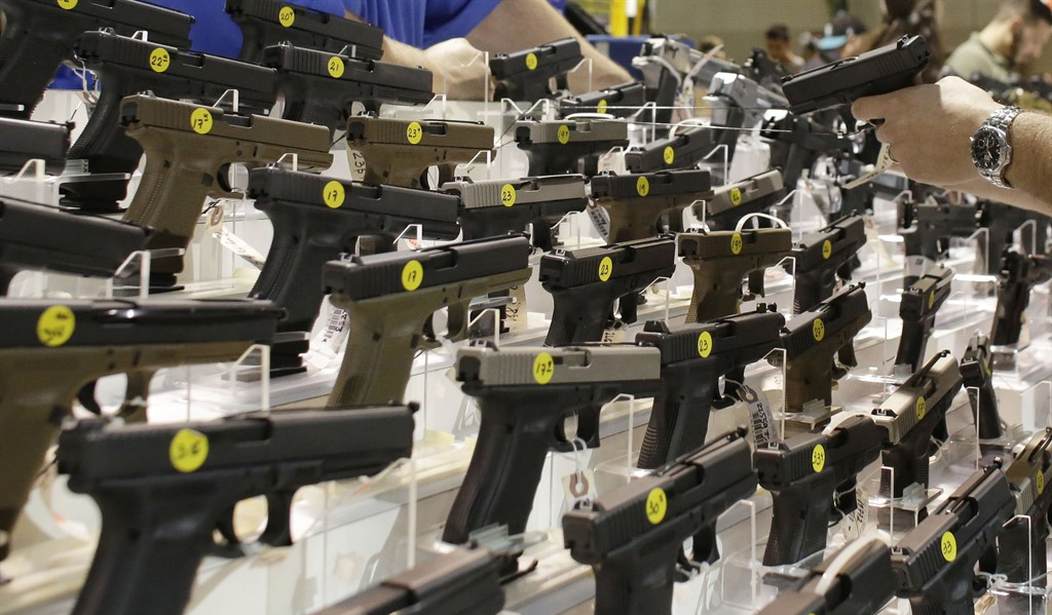Polling is something of an art and a science, at least in theory. Constructing a good, unbiased poll that will gauge the feelings of the American people is incredibly useful for figuring out how the public supports various policy proposals. It’s something that’s been around all my life and it’s just part of how the system works.
Except, the system doesn’t work when the pollsters either mislead respondents or simply don’t understand the topic well enough to form questions that accurately reflect the debate.
Take a poll that recently came out of Texas. In it, it suggests that Texans are really down with a lot of gun control measures. However, there’s more to it.
Slightly more than half of Texas registered voters say gun control laws should be stricter; a strong majority would require background checks for all gun purchases, and most would support temporarily taking guns away from people deemed dangerous to themselves and others, according to the latest University of Texas/Texas Tribune Poll.
Now, let’s leave out the difference between registered voters and likely voters (yes, there’s a difference). This suggests, at least in part, that a strong majority of Texans support universal background checks. Texas has a reputation as being an extremely pro-gun state, which means this poll also suggests this broad support exists among pro-gun folks in general.
And, it may, but only in so far as legislation reflects what they’re asked about.
For example, let’s look at universal background checks for a moment.
Requiring background checks for all gun purchases has overwhelming support in Texas, with 81% of registered voters saying that’s a good idea. The level of support varies a bit, but crosses party, gender, political and educational lines. For instance, 93% of Democrats, 74% of Republicans and 73% of independents support “requiring criminal and mental health background checks on all gun purchases in the United States, including gun shows and for private sales.” Women are slightly more supportive of background checks than men, and black and Hispanic voters are more supportive than white voters, but no subgroup’s support was lower than 71%.
OK, that certainly looks like universal background checks…in theory.
However, the problem is that there’s a difference between “gun sales” and “gun transfers,” but not one understood at some levels. You see, laws tend not to focus on gun sales per se, mostly because those are harder to track. For example, did I buy my guns or were they given to me by someone? If I didn’t get them through a licensed dealer, it’s almost impossible to know how I obtained them.
If laws specifically cover sales, then the loophole becomes, “Oh, I didn’t sell them to him. I traded with him.” Or “No, I gave it to him as a gift.”
It doesn’t change the fact that a gun changed hands without the background check. As a result, lawmakers tend to focus on transfers.
However, that offers up additional issues. For example, transfers include passing down heirloom firearms or even loaning a gun to someone who may be at risk but is unable to purchase a firearm due to financial considerations.
It’ll also create problems for colleges that hold onto students’ guns while on campus as they’d be required to perform a background check every time a student seeks to pick up their own firearm for a day at the range.
Will Texans support that? That’s the question that needs to be asked, but pollsters aren’t.
It’s not just universal background checks that suffers from this, either.
Support for so-called red flag laws, which allow courts to temporarily seize guns from people “determined to be a risk to themselves or others,” have the support of 68% of voters, but are much more popular with Democrats than with Republicans. While 87% of Democrats support those laws, 53% of Republicans do. Among independent voters, 57% support red flag laws.
The problem is, who is determining what here?
For example, red flag laws do go through the courts, but you know who isn’t there? For one the person being discussed isn’t part of the proceedings. Neither are any psychologists or psychiatrists who have examined the patients in the vast majority of cases. In other words, people find out that the determination is made by a judge who has never laid eyes on the person in question and bases this determination on the opinions of non-experts.
Honestly, I’m surprised that anyone who knows this backs red flag laws.
Yet those aren’t part of the question, either.
In fairness, the fault of this doesn’t lie exclusively with the pollsters. Polls that try to educate people on the issues will inherently turn biased–not that polls aren’t generally biased to some extent most of the time anyway–and annoy people who do understand the issue.
No, the fault of this lies with the media who is supposed to be educating people on the issue, giving them both sides of the debate so people can understand what’s going on and make a sound determination on their own.
Regardless, though, polls tell us something, but they’re not particularly useful when dealing with the gun debate.








Join the conversation as a VIP Member